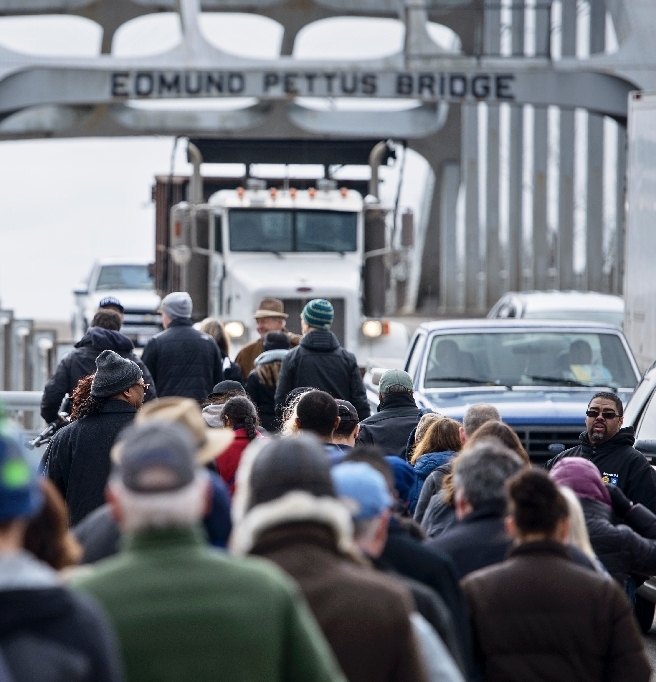
'No matter what it takes': Selma remembers Bloody Sunday 50 years on
They paid for black Americans’ right to vote with their blood and bruises. Now they remember. As President Barack Obama said on the eve of his visit to Selma, Alabama: the battle for civil rights is not ancient history. ”The people who were there are still around, you can talk to them,” America’s first black president said Friday. This weekend, Selma remembers those who took part in history - 600 activists who tried to march from Selma to the state capital Montgomery. They did not get far. As they crossed a Selma bridge named after Edmund Pettus, a Confederate general and Grand Dragon in the Ku Klux Klan, police attacked. Images of the brutal repression, ordered by Alabama governor George Wallace, galvanized national support for civil rights. A few months later, the Voting Rights Act was passed.
We were highly motivated. There was nothing that was going to break our spirit. There was no hostility. We were not attacking anybody. They started beating people. After that they chased people all the way back to the church. That went on all night.
70-year-old retired firefighter Henry Allen, who took part in the walk
There could hardly be a starker image of how far the nation has come since that dark day in Selma, but the long march is not over. Just this week, a probe by Obama’s Justice Department found last year’s protests in Ferguson, Missouri were in part provoked by the racist attitudes and tactics of city police. The violence in Ferguson focused American minds on the country’s ongoing racial divide, just as the violence in Selma did 50 years ago.
Selma played a very important role in helping to bring our nation to the realization that all men should be treated equally.
85 year-old Reverend Frederick Reese who remembers the march as a determined but non-violent demonstration

Selma Americas